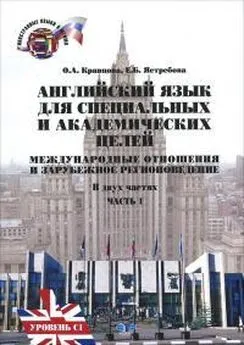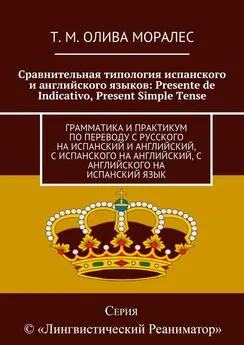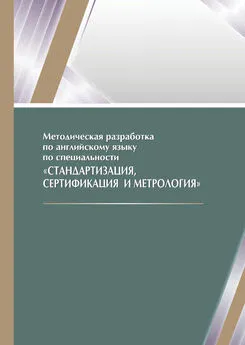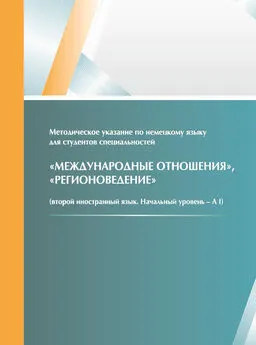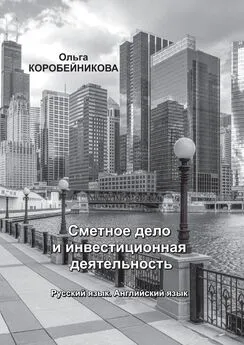Ольга Кравцова - Английский язык для специальных и академических целей: Международные отношения и зарубежное регионоведение. Часть 1
- Название:Английский язык для специальных и академических целей: Международные отношения и зарубежное регионоведение. Часть 1
- Автор:
- Жанр:
- Издательство:МГИМО-Университет
- Год:2015
- ISBN:978-5-9228-1210-8
- Рейтинг:
- Избранное:Добавить в избранное
-
Отзывы:
-
Ваша оценка:
Ольга Кравцова - Английский язык для специальных и академических целей: Международные отношения и зарубежное регионоведение. Часть 1 краткое содержание
Адресовано студентам четвертого курса факультетов и отделений международных отношений и зарубежного регионоведения.
Английский язык для специальных и академических целей: Международные отношения и зарубежное регионоведение. Часть 1 - читать онлайн бесплатно полную версию (весь текст целиком)
Интервал:
Закладка:
But it won't die. George W. Bush was peddling distilled Wilsonism when he declared, in his second inaugural address, that his aim was to eradicate tyranny in our world, in every nation and culture. He hadn't yet realized that his plan to create a true democracy in Iraq by invading the country and eradicating its tyranny wasn't exactly working as planned. Where do people get such ideas? Have they never heard of human nature?
But, even after the failure of Bush's foreign-policy efforts in behalf of the ameliorative impulse, Obama walked into the same trap. He said we just wouldn't be true Americans if we didn't jump on the bandwagon bent on destroying the tyranny of Libya's Muammar Qaddafi. So we led the bombing campaign, eradicated the old regime, and generated a sump of chaos that is proving impossible to control. He then instinctively concluded, seemingly on the basis of the ameliorative impulse, that Syria's Bashar al-Assad had to go. So now we are the sworn adversary of Assad at the same time that we are fighting those who are fighting Assad.
The ameliorative impulse is driving the liberal interventionism of the Obama administration. Like Wilson himself, Obama's Wilsonian officials believe that good things will follow if America maintains an expansive global presence in behalf of the good guys and against the bad guys. If we can just get rid of the tyrants, democracy and stability will follow. It never seems to do so, but that hardly constitutes a cause for any second thoughts on the part of these true believers.
The opposite of the ameliorative impulse is the tragic sense of life — the idea that mankind is flawed, that tyranny will always be with us, that human nature is fixed, and that utopian dreams centered on the ameliorative impulse will always come a cropper. A foreign policy emanating from this view of life focuses on the necessity of balancing power with power and rejects the idea that there is any culmination point in human development.
The other philosophical concept driving American foreign policy is the idea that America's post-Cold War mandate is to operate in the twenty-first-century world pretty much as it operated on the North American continent in the nineteenth century or as it burst onto the world scene at the dawn of the twentieth century. In a famous late-1990s article in the Weekly Standard, William Kristol and David Brooks promoted what they called “national greatness conservatism,” the central tenet of which seemed to be that the country didn't rise to sufficient grandeur to satisfy national aspirations. They called for a heightened sense of national purpose and, in its behalf, invoked the memory of Theodore Roosevelt, that brilliant and irrepressible warmonger of the day when America undertook to become an empire.
The Reader
Since then, Brooks has retreated to a certain circumspection on America's role in the world, but Kristol has indeed been a consistent latter-day TR, extolling every real and proposed American intervention since the morning of 9/11. His “national greatness conservatism” seems to have no governor on it.
But there is a flaw in equating such misadventures as the Iraq invasion with America's audacious actions in consolidating power upon the North American midsection or in kicking a corrupt and fading Spain out of the Caribbean and East Asia. The North American consolidation came at a considerable price, but the payoff was immense — a transcontinental nation facing two oceans and positioned to project power into both. The Spanish conflict carried hardly any price at all, but greatly enhanced America's global position. It's difficult to argue that those actions didn't further the country's national interest.
But how did America enhance its global position when it invaded Iraq.or contributed to the overthrow and death of Qaddafi.. .or got itself committed against both sides in the Syrian civil war?
So it isn't just Bush and Obama, or their minions, who have perpetrated so much foreign-policy incompetence over nearly a decade and a half. A major contributor has been a flawed outlook made up of two hopeless illusions — the ameliorative impulse and national greatness conservatism. So long as the American people permit their leaders to fashion the country's foreign policy based on those two illusions, the incompetence will continue.
http://www.ft.com/intl/cms/s/0/8f850056-38ee-11e4-a53b-00144feabdc0.html#axzz3MjIMJ7V7By Edward Luce
September 14, 2014/The Financial Times
If you embark on something with your eyes half-open, you are likely to lose sight of reality
Few have given as much thought as Barack Obama to the pitfalls of waging open-ended war on an abstract noun. On top of its impracticalities — how can you ever declare victory? — fighting a nebulous enemy exacts an insidious toll. Mr Obama built much of his presidential appeal on such a critique — the global war on terror was eroding America's legal rights at home and its moral capital abroad. The term “GWOT” was purged the moment he took over from George W Bush. In his pledge last week to “degrade and ultimately destroy” the Islamic State in Iraq and the Levant, known as Isis, he has travelled almost full circle. It is precisely because Mr Obama is a reluctant warrior that his legacy will be enduring.
The reality is the US war on terror has succeeded where it was supposed to. Mr Bush's biggest innovation was to set up the Department of Homeland Security. If you chart domestic terror attempts in the US since September 11 2001, they have become increasingly low-tech and ineffectual. From the foiled Detroit airliner attack in Mr Obama's first year to the Boston marathon bombings in his fifth, each attempt has been more amateur than the last. The same is true of America's allies. There has been no significant attack in Europe since London's July 7 bombings nine years ago. Western publics have acclimatised to an era of tighter security.
The Reader
If this is the balance sheet of the US war on terror, why lose sleep? Chiefly because it understates the costs. The biggest of these is the damage an undeclared war is doing to the west's grasp on reality. Myopic thinking leads to bad decisions. Mr Obama pointedly avoided using the word “war” last week. Although there are more than 1,000 US military personnel in Iraq, and more than 160 US air strikes in the past month, he insisted on calling his plan to destroy Isis a “campaign”. Likewise, the US uniforms are those of “advisers” and “trainers”. These kinds of euphemism lead to mission creep. If you embark on something with your eyes half-open, you are likelier to lose your way.
In 2011 Mr Obama inadvertently helped to lay the ground for today's vicious insurgency by withdrawing US forces from Iraq too soon. He left a vacuum and called it peace. Now he is tiptoeing back with his fingers crossed. The same reluctance to look down the road may well be repeating itself in Afghanistan. Mr Obama went out of his way last week to say that the Isis campaign would have no impact on his timetable to end the US combat mission in Afghanistan. The only difference between Iraq in 2011 and Afghanistan today is that you can see the Taliban coming. Nor does it take great insight to picture the destabilisation of Pakistan. In contrast to the Isis insurgency, which very few predicted, full-blown crises in Afghanistan and Pakistan are easy to imagine. So too is the gradual escalation of America's re-engagement in Iraq.
Mr Obama's detractors on both right and left want him to come clean — the US has declared war on Isis. Why else would his administration vow to follow it “to the gates of hell”, in the words of Joe Biden, the vice-president? Last year, Mr Obama called on Congress to repeal the law authorising military action against al-Qaeda that was passed just after 9/11. “Unless we discipline our thinking . . . we may be drawn into more wars we don't need to fight,” he said. Mr Obama is already vulnerable to what he warned against. His administration is basing its authority to attack Isis on the same unrepealed 2001 law.
Why does America need to destroy Isis? The case for containment — as opposed to war — has received little airing. But it is persuasive. The main objection is that destroying Isis will be impossible without a far larger US land force, which would be a cure worse than the disease. Fewer than 1,000 Isis insurgents were able to banish an Iraqi army force of 30,000 from Mosul in June — and they were welcomed by its inhabitants. Last week Mr Obama hailed the formation of a more inclusive Iraqi government under Haider al-Abadi. But it has fewer Sunni members than the last one. Nouri al-Maliki, the former prime minister, has been kept on in government.
The task of conjuring a legitimate Iraqi government looks like child's play against that of building up a friendly Syrian army. Mr Obama has asked Congress for money to train 3,000 Syrian rebels — a goal that will take months to bear fruit. Isis now commands at least 20,000 fighters. Then there are America's reluctant allies. Turkey does not want to help in any serious way.
Saudi Arabia's support is lukewarm. Israel is sceptical. Iran, whose partnership Mr Obama has not sought, is waiting for whatever windfalls drop in its lap. The same applies to Bashar al-Assad, Syria's president.
Whose army — if not America's — will chase Isis to the “gates of hell”? Which takes us back to where we started. Mr Obama wants to destroy an entity he says does not yet pose a direct threat to the US. Mr Bush called that pre-emptive war. Mr Obama's administration calls it a counterinsurgency campaign. Is it a distinction without a difference?
The US president's aim is to stop Isis before it becomes a threat to the homeland. History suggests the bigger risk is the severe downside of another Middle Eastern adventure.
It is hard to doubt Mr Obama's sincerity. It is his capacity to wade through the fog of war that is in question.
The Reader
http://www.themoscowtimes.com/opinion/article/could-is-bring-russia-and-the-us-togeth-er/506711.html
By Roland Dannreuther
Sep. 09 2014
The start of a fragile cease-fire in Ukraine opens up the potential for some limitation of the dangerous escalation in tensions between Russia and the West. Yet even as U.S. President Barack Obama is directly accusing Russia of intervention in support of the separatists in eastern Ukraine, the meteoric rise of the Islamic State (IS) in the Middle East presents a serious threat to both countries.
The U.S. and Russia have been equally committed and determined to counter militant Islamist terrorism; both have been directly threatened by the group; both have an interest in a sovereign and unified Iraq; and there are growing voices in Washington suggesting that an accommodation with the Syrian regime of Bashar Assad will be needed if IS is to be repelled.
Unsurprisingly, Russian Foreign Minister Sergei Lavrov has enthusiastically supported any potential favorable U.S. shift toward the Syrian regime.
Might Russia again play the role of interlocutor and mediator for Washington in the Middle East? The resonance here is with the deal struck by Russia in September last year over the elimination of Syria's chemical weapons stock.
The political context then in terms of U.S.-Russian relations had some similarities to the current situation. U.S.-Russian relations were similarly at a low ebb as there was a fundamental difference of opinion about what should be done about the Assad regime.
The U.S. demanded Assad's unconditional removal, while Russia insisted that this could not be a pre-condition for a resolution of the crisis. Both countries blamed the other for the intensity and bloodshed of the Syrian civil war. Russia argued that U.S. policy had only radicalized the opposition, breeding new extremist Islamist groups. The U.S. blamed Russia for undermining the moderate claims of the opposition through its unbending support for the criminal Syrian regime.
Читать дальшеИнтервал:
Закладка:
